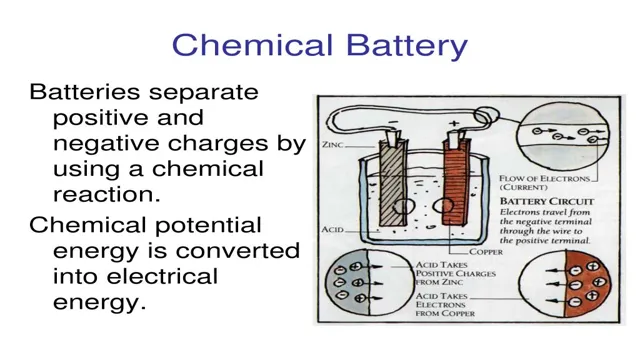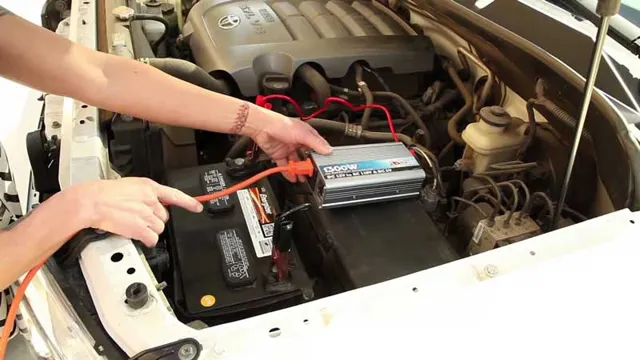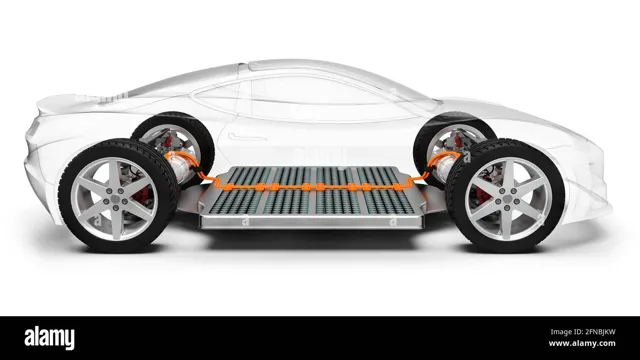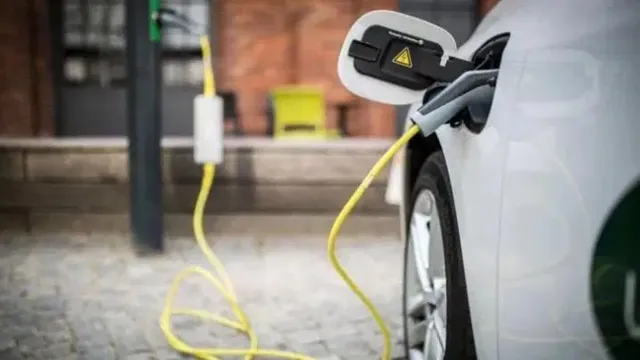The Shocking Truth About Chemicals in Electric Car Batteries: What You Need to Know
Electric cars are increasing in popularity due to their sustainability and environmentally friendly nature. However, the topic of the chemicals in electric car batteries has become a hot-button issue. As a result, more and more people are becoming curious about the makeup of what powers their vehicle.
In this blog, we will explore the chemicals found in electric car batteries and discuss their environmental impact, safety concerns, and possible solutions to reduce their potential risk. Whether you own an electric car or are considering purchasing one, this blog will provide valuable insights into the inner workings of your electric car battery. So, let’s dive in and learn more about the chemicals that fuel our eco-friendly rides.
What are Electric Car Batteries Made of?
Electric car batteries are typically made up of a combination of metals and chemicals, including lithium, nickel, cobalt, and manganese. Lithium-ion batteries are the most commonly used type, and they contain cathodes made of lithium cobalt oxide, lithium iron phosphate, or lithium nickel manganese cobalt oxide. The cathode is paired with an anode made of carbon, and an electrolyte solution is used to transfer ions between them.
Some batteries also contain small amounts of other elements such as aluminum or copper. These chemicals are carefully selected and arranged to maximize the battery’s energy density and overall performance, while also minimizing its weight and cost. In general, electric car batteries are designed to be durable, reliable, and easy to maintain, making them a popular choice for eco-conscious drivers looking to reduce their carbon footprint without sacrificing performance or comfort on the road.
Lithium-ion Cells
Electric car batteries are typically made up of lithium-ion cells that are both lightweight and powerful. These cells work by storing electricity in a chemical form, which can then be used to power the electric motor in the car. One of the benefits of using lithium-ion cells is that they have a high energy density, meaning that they can store a lot of energy in a small amount of space.
This is important for electric cars, as they need to be able to travel long distances on a single charge. The cells also have a long lifespan, which is important for reducing the cost of ownership over time. Other factors that can affect the performance of electric car batteries include temperature and charging speed.
Overall, the development of lithium-ion cells has been a major factor in making electric cars a viable alternative to traditional gasoline-powered vehicles.

Nickel-cadmium Batteries
Electric car batteries are typically made from rechargeable nickel-cadmium batteries, also known as NiCad batteries. These batteries consist of a nickel oxide hydroxide cathode and a cadmium anode, separated by a potassium hydroxide electrolyte. This combination produces a reliable and efficient energy source, allowing electric cars to travel longer distances without needing frequent recharging.
However, NiCad batteries do have some drawbacks, such as a relatively short lifespan and toxic environmental impact. As a result, many electric car manufacturers are shifting towards using lithium-ion batteries instead, which offer longer life and a more eco-friendly profile. Still, NiCad batteries remain a popular choice for many electric cars, and ongoing research is working to improve their performance and reduce their environmental impact.
Are Electric Car Batteries Safe?
One of the main concerns with electric cars is the safety of their batteries. The chemicals used in these batteries, such as lithium-ion, cobalt, and nickel, can be potentially harmful if not handled properly. However, it’s worth noting that the same can be said for any type of battery or fuel source.
The key to ensuring safety is to follow the manufacturer’s guidelines for storage, handling, and disposal. In fact, electric car batteries are generally considered to be safer than traditional gasoline-powered vehicles due to the decreased risk of fire or explosion. Additionally, advancements in battery technology have led to improvements in safety and sustainability, such as using more environmentally-friendly materials and designing batteries to be easier to recycle.
So while there are certainly risks associated with electric car batteries, overall they are a safe and sustainable choice for modern transportation.
Risk of Fire and Explosion
Electric car batteries have become a popular alternative to gasoline-powered cars due to their lower carbon emissions and cost savings. However, some people are concerned about the safety of electric car batteries. One of the main risks associated with these batteries is the potential for fire and explosion.
Lithium-ion batteries, which are often used in electric cars, can catch fire or explode if they are damaged or exposed to high temperatures. In rare cases, this has caused serious accidents and deaths. However, it’s important to note that the risk of fire or explosion in electric car batteries is low compared to the overall safety of these vehicles.
Manufacturers take many precautions to prevent these incidents from happening, such as using special safety features and offering training for emergency responders. So, while there is a risk, electric car batteries are generally considered safe for everyday use.
Recycling and Disposing of Electric Car Batteries
As electric cars continue to gain popularity, there’s increased concern over the safe disposal and recycling of their batteries. But the good news is that electric car batteries are generally safe and pose a minimal risk of explosion or combustion. Still, it’s crucial to handle them with care and dispose of them properly.
Electric car batteries are made up of valuable materials such as lithium-ion, cobalt, and nickel, which makes them attractive to recyclers. Recycling these batteries reduces the environmental impact of mining these materials and helps reduce the overall carbon footprint. Plus, proper disposal helps prevent toxic chemicals from leaching into the ground and polluting the environment.
So, it’s always best to recycle or dispose of electric car batteries through approved channels and follow local regulations to ensure safety and environmental responsibility.
Impact on the Environment
Electric car batteries have been a topic of concern for those who advocate for a cleaner and environmentally friendly mode of transportation. Many wonder if these batteries are safe and if they pose any risks to the environment. It is essential to note that the batteries used in electric cars are made up of several components, including metals, plastics, and chemicals.
While these components may cause environmental harm if not disposed of properly, car manufacturers have created systems to recycle and reuse the materials. Furthermore, electric car batteries are much safer than gasoline tanks, as they pose a lower risk of exploding or catching fire during an accident. In conclusion, electric car batteries are safe and do not pose significant risks to the environment when disposed of and recycled properly.
With the increasing demand for electric cars, it is crucial to promote responsible and sustainable disposal of old batteries to ensure they do not harm the environment.
Conclusion
In conclusion, the chemicals in electric car batteries are a complex mixture of elements that work together to power our rides and reduce emissions. From the lithium in the core to the nickel and cobalt in the cathode, each component plays a vital role in converting electrical energy into kinetic energy. While there is ongoing research to develop more sustainable alternatives, for now, these chemical concoctions remain an integral part of the electric vehicle revolution.
So the next time you zoom by in your electric car, know that there’s more chemistry behind it than meets the eye!”
FAQs
What type of chemicals are used in electric car batteries?
Lithium-ion batteries are commonly used in electric cars, which contain chemicals such as lithium cobalt oxide, nickel cobalt aluminum, and lithium iron phosphate.
Are electric car batteries environmentally friendly?
Electric car batteries are more environmentally friendly compared to conventional gasoline-powered cars because they produce zero emissions while driving. However, the production of batteries requires a significant amount of energy and resources, which may have an environmental impact.
How long do electric car batteries last?
The lifespan of electric car batteries varies depending on factors such as the type of battery, the quality of the battery, and the driving conditions. Typically, electric car batteries can last between 8 to 10 years or up to 100,000 to 200,000 miles.
Can electric car batteries be recycled?
Yes, electric car batteries contain valuable materials such as lithium, cobalt, and nickel that can be recycled. Many car manufacturers have established programs to recycle used batteries and recover these materials for future use.






